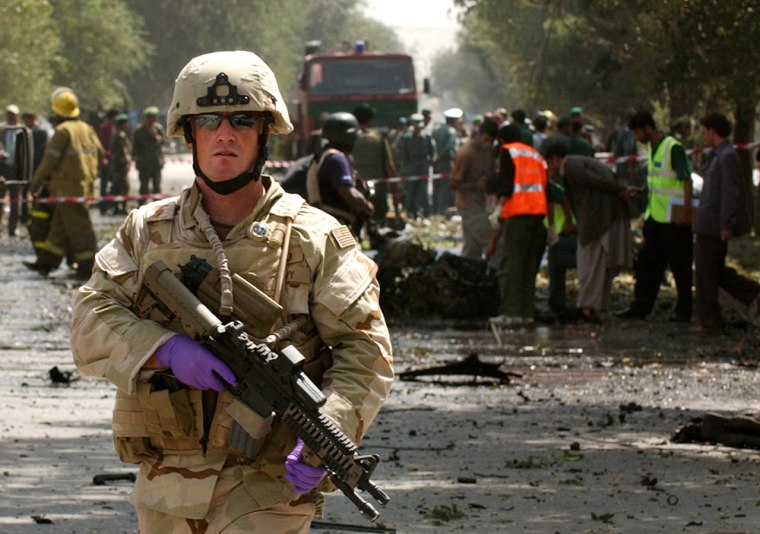CAMP WARRIOR, Afghanistan — I was last in Afghanistan almost five years ago. I arrived in the north of the country on an old Russian helicopter just two days before the U.S. dropped its first bomb on October 7, 2001.
Nothing much has changed. It’s still very much a war zone.
As proof, I was jostled out of my cot the other night when the U.S. Army fired rounds from its huge 105 guns. The soldiers forgot to mention the cannon-like weapons were just over the berm from our tent.
I woke up confused by the blasts. I smelled gun powder, and half-awake mind thought: We’re under attack. I fumbled in the darkness for my flak jacket. I was headed for the hardened shelter when I realized that the only ones running for cover were other reporters. A soldier finally broke the news to us: Go back to sleep, it’s nothing.
My heart stopped pounding. But nothing? That’s all perspective.
Still sacrificing
For most of America, this has become a forgotten war. There are 22,000 American troops deployed to this country, but we rarely hear about their successes, their struggles or, as in the case of Sgt. Scott Pilgreen, 10th Mountain Division, Fort Polk, La., their sacrifices.
Pilgreen has been deployed to Afghanistan three times. Married with children, he’s spent almost two years here.
“Nobody really cares about Afghanistan back in the States," he says. "It’s all Iraq, Iraq, Iraq.”
I asked him what he thinks of his enemy, the Taliban.
“They’re smart, they’re conniving, they’re sneaky,” said Pilgreen.
And, as the statistics reveal, the Taliban is also effective.
Attacks on the rise
Suicide car bombings, once the choice of attack in Iraq, are now routine here. U.S. Army intelligence says there’s been a 400 percent increase this past year.
On Friday, a suicide car bomb attacked a U.S. military convoy in downtown Kabul, near the U.S. embassy. The attacker killed himself and at least 18 other people, including two American soldiers. Two other American soldiers were among 31 people wounded.
Including the bombing on Friday, one of the worst in Kabul in recent years, 274 uniformed Americans have been killed since the war began Oct. 7, 2001.
Patrol ends, war continues
That statistic felt very real when I was on a foot patrol with Mohawk Company a few days ago.
U.S. and Afghan soldiers were walking the sides of the dirt road in the Moqur bazaar when, BANG! A gun shot.
We scrambled for cover.
No one knew where the shot came from. Or who fired it.
This is Taliban territory.
I huddled up against a mud wall, waiting to see if things would escalate.
This time, it was just a single shot. No one was hit. But Sgt. Dana Andrews, the patrol leader, decided it was best to fall back. The patrol ended, but the war continues.
It's a war that we shouldn't forget. Its goal — to root out the Islamic fundamentalist Taliban, help the fledgling democratic government take hold, and never allow this country to be used as a base to train, plot and launch an attack on the U.S. again — has yet to be reached.
